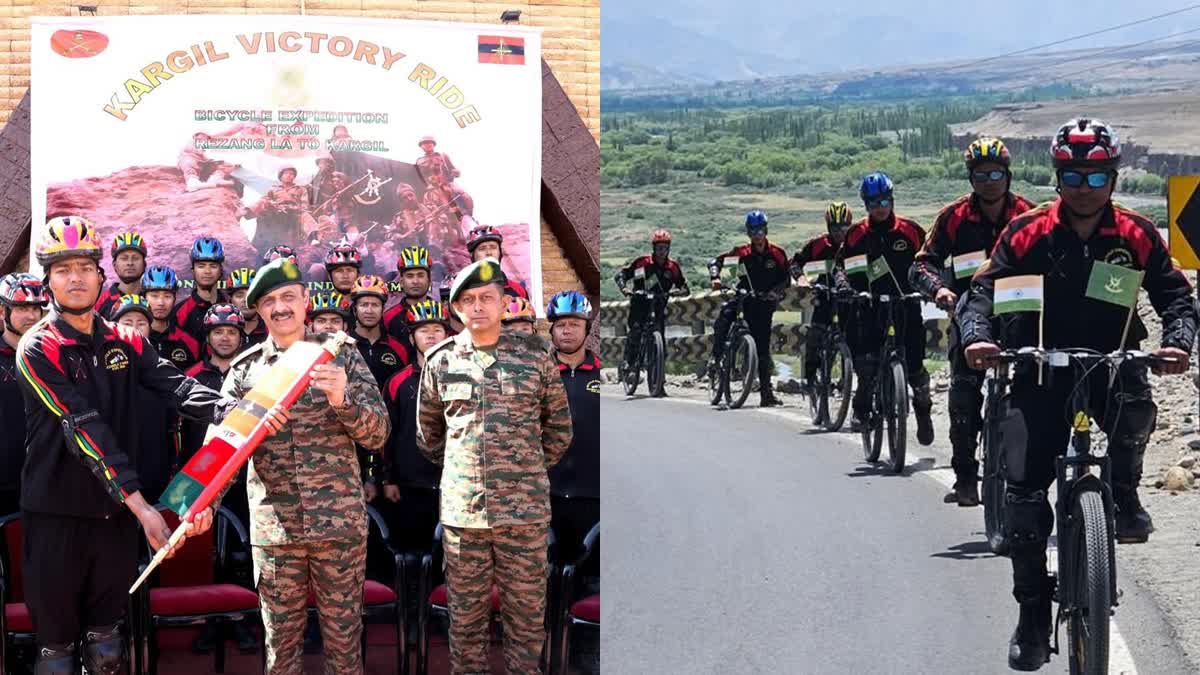Srinagar (Jammu and Kashmir): June 4 marks the 25th anniversary of the recapture of Tiger Hill, a pivotal event during the Kargil War described as "the mother of all battles."
In 1999, Pakistani forces, executing 'Operation Badr', had seized Tiger Hill, a strategically crucial mountain towering over the Srinagar-Leh highway in the Ladakh region. This occupation posed a significant threat to Indian military supply lines and strategic positions.
Operation Vijay, launched by the Indian Armed Forces, aimed to reclaim Tiger Hill and other occupied peaks. The operation involved multiple regiments, including the 18 Grenadiers, 8 SIKH, 13 JAK RIF, and 2 NAGA, under the command of Brigadier MPS Bajwa and Colonel Thakur.
The battle for Tiger Hill was fierce and strategically complex. Indian troops faced well-entrenched Pakistani forces, including elements of the Northern Light Infantry, supported by artillery and engineers. Despite initial setbacks and heavy casualties, Indian soldiers persisted in their assault.
#KVD2024#KargilVictoryRide#Day5
— @firefurycorps_IA (@firefurycorps) July 2, 2024
The #RezangLa to #Kargil War Memorial Victory Ride by Head Hunters #MashkohSaviours of #ParashuWarriors Brigade reached #HallOfFame, Leh where the General Officer Commanding @firefurycorps interacted with the team and flagged off the expedition… pic.twitter.com/44SEX8aWf0
Lieutenant Balwan Singh and his Ghatak Platoon led a daring assault from the North-Eastern direction, establishing a crucial foothold. Meanwhile, Major PJ Mijar's C Company and Lieutenant Sachin's D Company approached from different angles, aiming to secure the summit.
The final assault on Tiger Hill began on July 3, 1999, under cover of artillery and air strikes. Despite intense enemy resistance, Indian troops, aided by precise air support from the Indian Air Force, managed to breach Pakistani defenses. Grenadier Yogendra Singh Yadav, leading from the front, was critically injured but continued to inspire his comrades. His heroic actions, including climbing a vertical cliff under enemy fire, earned him the Param Vir Chakra, India's highest military honor.
By dawn on July 4, 1999, Indian forces had hoisted the tricolor atop Tiger Hill, signaling the successful recapture of the strategic peak. The victory was a turning point in the Kargil War, demonstrating India's determination and military prowess.
Brigadier MPS Bajwa recounted the intense battle and the bravery displayed by Indian soldiers. "The capture of Tiger Hill was not just a military success but a testament to the courage and sacrifice of our troops," he remarked.
The recapture of Tiger Hill was followed by subsequent operations to clear remaining Pakistani positions in the region. The Indian Army's efforts were supported by relentless artillery barrages and ground assaults, which ultimately forced Pakistani forces to retreat.



